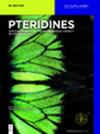叶酸、维生素B12和B6补充剂对心脑血管疾病风险的影响:一项随机对照试验的最新meta分析
IF 0.9
4区 医学
Q4 BIOCHEMISTRY & MOLECULAR BIOLOGY
引用次数: 0
摘要
大量研究表明,补充B族维生素可以降低心血管风险;尽管如此,来自个别研究的现有证据并不一致,因此我们对随机对照试验(rct)进行了更新的荟萃分析,以评估补充B族维生素与心血管结局之间的关系。检索PubMed、Embase、Cochrane Library、Chinese Biology Medicine、Chinese National Knowledge Infrastructure电子数据库中2022年5月前发表的相关研究。结果包括主要不良心血管事件(MACE)、心肌梗死(MI)、中风、因不稳定型心绞痛住院、血运重建术、总死亡率和心血管死亡。用95%置信区间(95% CI)的风险比(RR)检验相关性的强度。结果meta分析共纳入17项rct,涉及31,085名受试者。联合补充B族维生素对8项rct (RR = 0.98, 95% CI = 0.92-1.04)、13项rct (RR = 1.00, 95% CI = 0.92-1.09)和12项rct (RR = 1.02, 95% CI = 0.95-1.10)的MACE和血运重建术无显著影响。10项研究表明,联合补充B族维生素可使中风风险降低12% (RR = 0.88, 95% CI = 0.81-0.97)。11项研究表明,联合补充B族维生素对总死亡率无显著影响(RR = 0.99, 95% CI = 0.94-1.05), 9项研究表明,联合补充B族维生素对心血管死亡无显著影响(RR = 0.96, 95% CI = 0.88-1.05)。此外,随着随访时间的延长和有心脑血管病史者,补充B族维生素可降低卒中风险。结论补充叶酸、维生素B6和B12与卒中的减少有关,但与总死亡率、心血管死亡、MACE和心肌梗死无关。本文章由计算机程序翻译,如有差异,请以英文原文为准。
Effect of folic acid, vitamin B12, and B6 supplementation on the risk of cardiovascular and cerebrovascular diseases: An updated meta-analysis of randomized controlled trials
Abstract Background Numerous studies indicated that B vitamin supplementation can reduce cardiovascular risk; nonetheless, available proof reported from individual studies have not been consistent, so we performed an updated meta-analysis of randomized controlled trials (RCTs) to evaluate the relationship between B vitamin supplementation and cardiovascular outcomes. Materials and method Relevant studies published before May 2022 were searched from the electronic databases of PubMed, Embase, the Cochrane Library, Chinese Biology Medicine, and the Chinese National Knowledge Infrastructure. Outcomes included major adverse cardiovascular event (MACE), myocardial infarction (MI), stroke, hospitalization for unstable angina, revascularization, total mortality, and cardiovascular death. The strength of the association was examined by risk ratio (RR) with 95% confidence interval (95% CI). Results A total of 17 RCTs involving 31,085 subjects were included in the meta-analysis. The combined supplementation of B vitamins had no significant effect on MACE based on eight RCTs (RR = 0.98, 95% CI = 0.92–1.04), MI based on 13 RCTs (RR = 1.00, 95% CI = 0.92–1.09), and revascularization based on 12 RCTs (RR = 1.02, 95% CI = 0.95–1.10). Ten studies showed that the combined supplementation of B vitamins reduced the risk of stroke by 12% (RR = 0.88, 95% CI = 0.81–0.97). Eleven studies showed that the combined supplementation of B vitamins had no significant effect on the total mortality (RR = 0.99, 95% CI = 0.94–1.05), and nine studies showed that the combined B vitamins had no significant effect on cardiovascular death (RR = 0.96, 95% CI = 0.88–1.05). Besides, with the extension of follow-up duration and those with a history of cardio-cerebrovascular diseases, supplementation of B vitamins could reduce the risk of stroke. Conclusion The supplementation of folic acid, Vitamin B6, and B12 is associated with a reduction in stroke, but not in total mortality, cardiovascular death, MACE, and MI.
求助全文
通过发布文献求助,成功后即可免费获取论文全文。
去求助
来源期刊

Pteridines
生物-生化与分子生物学
CiteScore
1.20
自引率
25.00%
发文量
6
审稿时长
>12 weeks
期刊介绍:
Pteridines is an open acess international quarterly journal dealing with all aspects of pteridine research. Pteridines are heterocyclic fused ring compounds involved in a wide range of biological functions from the color on butterfly wings to cofactors in enzyme catalysis to essential vitamins. Of the pteridines, 5,6,7,8-tetrahydrobiopterin is the necessary cofactor of several aromatic amino acid monoxygenases, the nitric oxide synthases and glyceryl ether monoxygenase (GEMO). Neopterin plays an essential role in the immune system and is an important biomarker in laboratory medicine for diseases such as HIV, cardiovascular disease, malignant tumors, among others.
Topics:
-Neopterin, dihydroneopterin, monapterin-
Biopterin, tetrahydrobiopterin-
Folates, antifolates, riboflavin-
Phenylalanine, tyrosine, phenylketonuria, serotonin, adrenalin, noradrenalin, L-DOPA, dopamine, related biogenic amines-
Phenylalanine hydroxylase, tyrosine hydroxylase, tryptophan hydroxylase, nitric oxide synthases (iNOS), alkylglycerol monooxygenase (AGMO), dihydropterin reductase, sepiapterin reductase-
Homocysteine, mediators of inflammation, redox systems, iron.
 求助内容:
求助内容: 应助结果提醒方式:
应助结果提醒方式:


